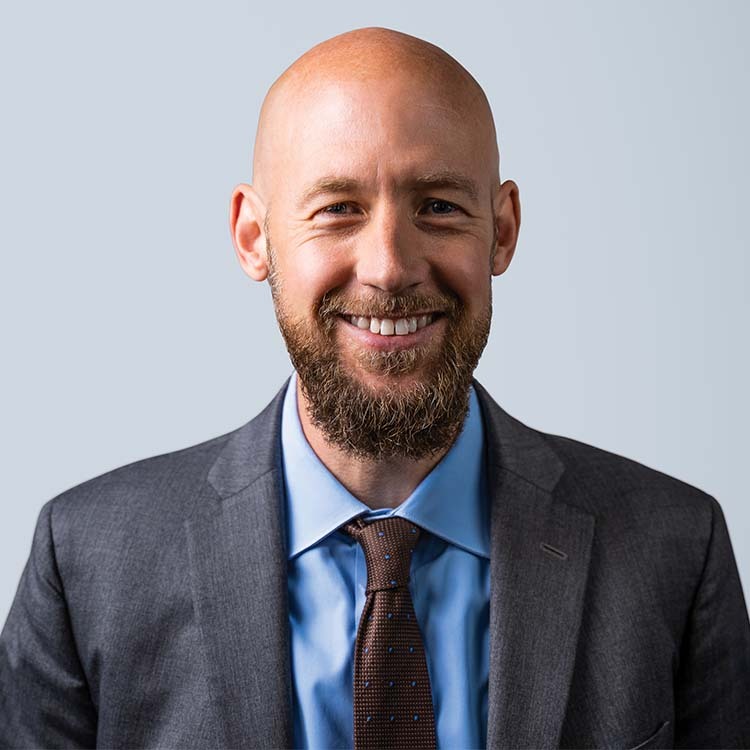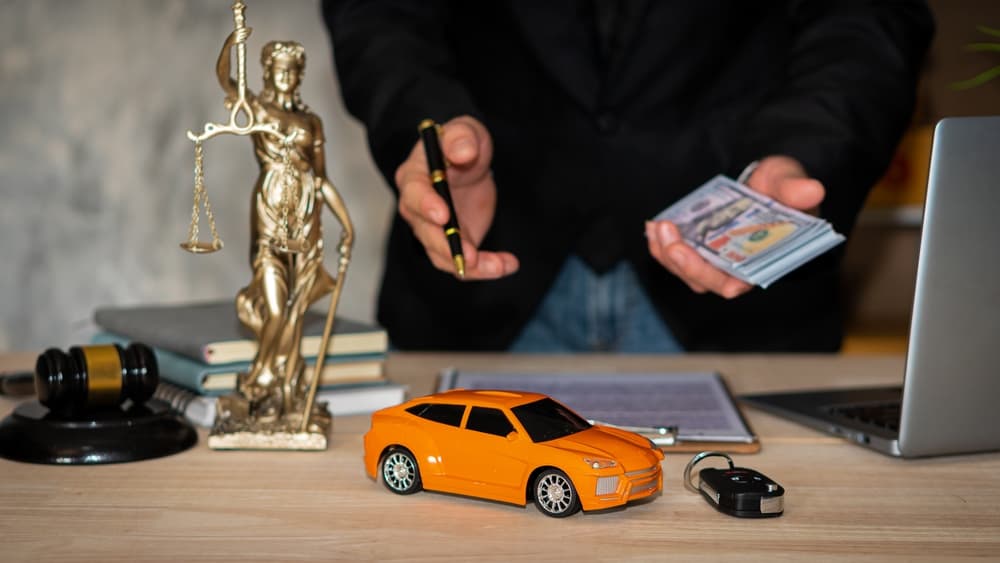After a car accident, you will face issues including insurance claims, car repairs, medical treatment, and likely a lot of trauma and stress. Don't face the aftermath alone. A car accident lawyer can provide you with a better understanding of your options and protect you during the insurance claims process.
In most car accident claims, you need someone in your corner experienced in negotiating with the insurance company on your behalf. Insurance companies have teams of lawyers working for them. Who is looking out for you?
Nicolet Law Accident & Injury lawyers have experience handling car accident claims in the Midwest, with offices in Minnesota, Wisconsin, and North Dakota. We are familiar with the laws around these claims.
Who May a Car Accident Involve?
Car accidents may involve various individuals and entities that could affect a liability claim.
Parties in a car accident include:
- Drivers: The drivers of the vehicles involved are typically the central parties in a car accident.
- Passengers: Passengers in any of the vehicles involved can also sustain injuries.
- Pedestrians: Cars can hit people walking or standing near the accident scene.
- Cyclists: Bicyclists sharing the road with motor vehicles are at risk of accidents.
- Motorcyclists: Motorcyclists are vulnerable to accidents as well.
- Other road users: This category includes individuals on scooters, mopeds, or any other mode of transport on the road.
- Insurance companies: The insurance companies of the involved drivers play a significant role in handling claims and providing compensation.
- Law enforcement: Police officers respond to accidents, investigate, and create official accident reports.
- Tow truck services: Tow truck operators may need to remove damaged vehicles from the scene.
- Medical personnel: Paramedics and medical professionals aid injured individuals.
- Attorneys: Legal professionals may get involved to represent parties in legal matters related to the accident, such as personal injury claims or insurance disputes.
- Witnesses: Bystanders who saw the accident occur can provide crucial information about what happened.
- Repair shops: After the accident, repair shops must fix the damaged vehicles.
Exchange information with the other parties involved, including drivers, passengers, and witnesses, and report the accident to law enforcement and insurance companies promptly. If you're injured, seek medical attention.
After a car accident resulting in serious injury or death, hire an experienced personal injury lawyer. With so many moving parts, investigating a car accident claim and establishing liability may involve a lot of leg work. A personal injury firm can provide the resources of time, knowledge, and manpower to interview multiple parties to gather all the facts needed to file your claim.
Who May be Held Liable for a Car Accident?
In a car accident, liability, or legal responsibility, can fall on various parties depending on the specific circumstances. The most common scenario is when one or more drivers are at fault due to actions like speeding, running red lights, or reckless driving.
If the at-fault driver doesn't own the vehicle involved, you can hold the owner of the vehicle liable for negligently entrusting the vehicle to an incompetent or reckless driver.
If the at-fault driver was operating a vehicle for their job at the time of the accident, their employer may be held liable. Vicarious liability holds one party responsible for the actions or negligence of another party, even if the first party didn't directly cause the harm. In the context of car accidents, vicarious liability typically arises in employer-employee relationships.
Common examples of vicarious liability in car accidents include delivery drivers, truck drivers, taxi drivers, or employees who use company vehicles for work-related tasks. In such cases, if the employee's negligence causes an accident, the employer's insurance may need to cover damages and pay compensation to the injured parties.
Poorly maintained roads or inadequate signage can also contribute to accidents. In some cases, you can hold government entities responsible for road maintenance. Likewise, you can hold road construction companies or maintenance contractors liable if their actions or negligence contributed to the accident.
Bars, restaurants, or social hosts who overserve alcohol to an intoxicated person who later causes an accident may face liability under dram shop or social host laws.
In some states, multiple parties can share liability based on their level of fault under contributory or comparative negligence laws.
Contributory Negligence:
Under contributory negligence, if an injured party (plaintiff) is found be partially at fault for an accident, they cannot recover any damages.
Comparative Negligence:
The two main types of comparative negligence are pure comparative negligence and modified comparative negligence.
- Pure comparative negligence: In pure comparative negligence states, each party's degree of fault is assessed, and damages are awarded proportionally. For example, if the plaintiff is found 30 percent at fault and the defendant 70 percent at fault, the plaintiff can still recover 70 percent of the damages.
- Modified comparative negligence: Many states use a modified comparative negligence system, which has variations. In a typical modified comparative negligence system, if the plaintiff's fault is equal to or greater than a certain threshold (often 50 percent or 51 percent), they cannot recover damages. If the plaintiff's fault is less than the threshold, they can recover damages, but the amount is reduced based on their percentage of fault. For example, if the plaintiff is 20 percent at fault, their damages decrease by 20 percent.
The specific rules and thresholds for comparative negligence can vary widely from one state or jurisdiction to another. Some states follow pure comparative negligence, while others have different variations of modified comparative negligence. These laws aim to ensure that compensation is proportionate to each party's level of fault.
If you're in a car accident involving comparative negligence, consult an attorney familiar with the laws in your jurisdiction to understand how they might apply to your case. A lawyer with knowledge of multiple states' laws can navigate these differences. We have offices in Minnesota, Wisconsin, and North Dakota, all of which operate under a modified comparative negligence system.
How Long Do I Have to File a Car Accident Claim?
Different states have statutes of limitations, which dictate how long you have to file a personal injury lawsuit. The statute of limitations technically begins from the occurrence of the incident. However, the discovery rule states that the clock on the statute of limitations doesn’t start running until the injured party discovers the injury or reasonably should have discovered it.
The purpose of the statute of limitations is twofold: to prevent indefinite threats of legal action and to preserve the integrity of evidence, including physical proof and witness statements. These limitations typically vary depending on the nature of the claims.
A lawyer can ensure that all deadlines are met, preventing your claim from being dismissed due to a missed deadline. For example, the statute of limitations for personal injury claims in Minnesota is six years, while the statute of limitation in Wisconsin is three years.
Won’t My Car Insurance Cover My Car Accident Expenses?
Your car insurance can cover many expenses related to a car accident, but the extent of coverage depends on the type of insurance you have and the specific circumstances of the accident.
Insurance policies often have deductibles and coverage limits, which can affect the amount of compensation you receive. If you're not at fault for an accident the other driver caused, you may also seek compensation from their insurance company for your damages and injuries. A personal injury attorney can navigate the process and recover the appropriate compensation.
The insurance claims process also can be different from state to state. Nicolet Law has offices in Minnesota, Wisconsin, and North Dakota, so we are familiar with the different laws governing car accident claims in different states.
For example, Minnesota operates as a no-fault insurance state. After an accident, motor vehicle drivers must initiate insurance claims with their own insurance provider initially, regardless of fault.
After a serious injury resulting from an accident, your personal injury protection (PIP) coverage typically offers compensation regardless of accident fault (provided the accident involves a motor vehicle). You can only file a personal injury claim after exhausting your PIP coverage. Talk with an experienced Minnesota personal injury lawyer to navigate this process.
In our experience, insurers prioritize their own interests, often hesitating to provide you with the rightful compensation you deserve. In some cases, they attempt to leave you with nothing or issue outright denials.
We can take the lead, communicating with these insurance giants and sparing you the worry while we construct your case. Throughout the entire process, we tirelessly advocate for our clients, ensuring they recover what they lost, and empowering them to build a brighter future.
Common Causes of Car Accidents
To avoid accidents, it's crucial to drive defensively, obey traffic laws, and stay focused on the road. It only takes a moment for an accident to happen.
Some of the most common causes of car accidents include:
- Distracted driving: Activities like texting, talking on the phone, or eating divert attention from the road.
- Speeding: Driving above the speed limit reduces reaction time and increases the severity of accidents.
- Impaired driving: Alcohol, drugs, or medication impair judgment and reaction times.
- Reckless driving: Aggressive behaviors such as tailgating, weaving in and out of traffic, and road rage can lead to accidents.
- Weather conditions: Rain, snow, ice, and fog can make roads slippery and reduce visibility.
- Running red lights/stop signs: Disobeying traffic signals is a common cause of intersection accidents.
- Fatigue: Driving while tired impairs concentration and reaction times.
- Inexperienced drivers: Novice drivers may struggle with decision-making and handling unexpected situations.
- Mechanical failures: Malfunctions in brakes, tires, or other vehicle systems can lead to accidents.
- Poor road conditions: Potholes, uneven road surfaces, and lack of proper signage can contribute to accidents.
- Animals: Collisions with wildlife or domestic animals can occur, especially in rural areas.
According to the National Highway Traffic Safety Administration (NHTSA) Overview of Motor Vehicle Crashes, 38,824 people died in motor vehicle traffic crashes on U.S. roadways in one year. This is the largest number of fatalities since 2007. It also represents a 6.8-percent increase from 36,355 fatalities in the previous year or 2,469 more people killed in traffic crashes.
The fatality rate per 100 million vehicle miles traveled (VMT) increased by 21 percent to 1.34 in the last year, which is the largest percentage increase on record.
The number of people injured on our roads decreased last year by 17 percent to 2.28 million. The injury rate per 100 million VMT decreased by 6.0 percent from to 79.
Why Choose Nicolet Law Accident & Injury Lawyers for Your Car Accident Claim?
The legal team at Nicolet Law Accident & Injury Lawyers has decades of combined experience representing clients in the Midwest. We know the area and the community, and we take your car accident claim seriously. Our legal team knows how to work with insurance companies to make sure you don’t get the runaround.
Our personal injury attorneys represent you to get the best settlement to compensate you for your injuries. Let us help you regain your peace of mind by working to hold those responsible for your injuries accountable.

Contact us today for your free case evaluation. We have more than 20 offices throughout Wisconsin, Minnesota, and North Dakota, making it easy for you to meet with one of our lawyers near you.
Call our main offices to locate a lawyer near you. You can also fill out our consultation form online. We're ready to help you!
